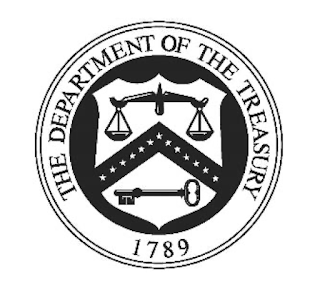Biden joins Wyden in Fantasyland
One of the President's loopier plans is to try to tax billionaires on the annual increase in the value of their assets, even those that the billionaires don't sell. There are a couple of major, major problems with this. One is that it is based on valuations. There would have to be a valuation of a wealthy person's assets to see if the tax applied, and more valuations later to see how much the tax was. Valuing property is an art form, to put it politely. People play all sorts of games. It's hard to police cheating. This is why Donald Trump is in Mar-a-Lago today, instead of in prison where he belongs.
But even if you're willing to live with that uncertainty, there's a legal problem. A famous old Supreme Court case, Eisner v. Macomber, suggests that it would be unconstitutional to tax property value fluctuation. A lot of fancy academic types have written that that case is no longer "good law," as they say, but take a look at the current Supreme Court. Do you think they would overrule an old precedent of theirs so that the Democrats could tax the rich?
And with taxes, you usually can't get an injunction or declaratory ruling before the money is actually collected. By the time the Supreme Court ruled on the legality of the tax, it would already be in place for at least a year or two. If the tax got struck down, all the money collected would presumably have to be refunded. What a morass to plop the IRS into.
So where did the Biden people get this daffy idea? Why, from Ron Wyden, of course. Chair of the Senate Finance Committee these days, he is a veritable font of proposals that other senators snicker at and toss into the round file. Old Rockefeller Ron has been pushing the craziness of taxing unrealized gains for a few months now. He's going to rewrite partnership tax, too. The response has been underwhelming. It's all going a big fat nowhere.
Trying to get significant tax changes made in a congressional election year is usually a futile exercise. You have to get these things done in the odd-numbered years. Wyden and Biden failed in 2021, and they're about to face a divided Congress at best in 2023. They can propose away, all they want, but the McConnell-Trump tax system we have at the moment looks good to go for at least another three years or so.

I'd really love to hear my favorite tax attorney's take on the new rules regarding 1099-K's. https://www.wsj.com/articles/internal-revenue-service-taxes-irs-1099-k-form-tracking-payment-transactions-credit-card-venmo-privacy-breach-cybersecurity-11648745007?st=ptw51lnnp0nimre&reflink=desktopwebshare_permalink
ReplyDeleteLooks like most of the information that the IRS will get will be pretty useless. If I were the Commissioner of Internal Revenue, I'd tell my people to ignore it unless it helps with an audit triggered by something else. If it scares some cheaters into playing by the rules, no harm done.
DeleteWhat is the remedy for the tax evasion by the ultra characters like Peter Theil and Elon Musk who arrange to have little or no “income” by putting stock options into Roth IRAs that explode in value, value that can be borrowed against for pocket coin.
ReplyDeleteWe do tax “unrealized gains” on property in this country — everyone with a house knows it. Why shouldn’t we tax unrealized gains on intangible wealth that rich people own, just as we tax unrealized gains on tangible wealth that ordinary folks own?